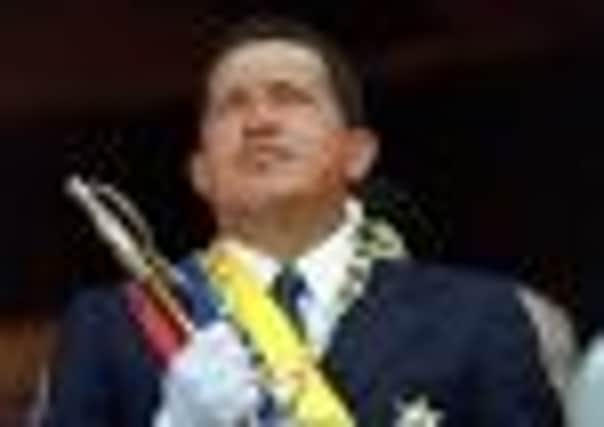Neil Findlay: Two leaders on different continents who left their mark


Just as Margaret Thatcher dominated UK politics for more than ten years, at the polar opposite end of the political spectrum Hugo Chávez was a colossus of the Latin American Left.
Chávez died in March following a battle with cancer and was only able to serve a few months of his fourth term following his election victory.
Advertisement
Hide AdAdvertisement
Hide AdVenezuelans go to the polls today to elect the successor to the man who arguably divided opinion in Venezuela as much as Thatcher did in the UK.
Arriving in Caracas on Wednesday at the invitation of the CNE, a state body established by the constitution with responsibility for overseeing the Venezuelan electoral process, I joined 130 international observers invited to independently scrutinise the system. This is the system described by the Carter Centre – a human rights organisation established by former US president Jimmy Carter – as “the best in the world”.
The contest itself sees Henriques Capriles, beaten by Chávez in October, as once again the candidate of the rightwing MUD (democratic unity movement) whilst Chávez’s chosen heir, the former foreign minister, bus driver and trade union leader Nicolas Maduro, is the standard bearer of the Chavista Left.
Politics is a big deal in Venezuela. Turnout in the 2012 presidential election was 80.48 per cent and pre-election rallies draw tens of thousands of people every day.
Driving into the Caracas valley you can see the barrios clinging to the steep hillsides. These densely populated shanty towns were the backbone of Chávez’s support, and whose votes Maduro is seeking to draw. The people living here and the rural poor have benefited greatly from the social programmes Chávez introduced.
These programmes, financed by Venezuela’s oil revenues, have been developed through close working relationships with the Alba bloc of nations, including, among others, Ecuador, Bolivia and Cuba.
The Chávez government policy programme actively redistributes wealth to the poor, enabled by the state control of the oil sector. Community health and literacy programmes, subsidised food and energy and significant inroads into poverty levels gave the poor a reason to vote. They rewarded Chávez with four straight election victories.
Whilst Chávez is no longer with us, his influence on the campaign trail is everywhere. For the Left and the working class anything other than a Maduro win is unthinkable. They want to see the gains of Chávez’s Bolivarian revolution continue.
Advertisement
Hide AdAdvertisement
Hide AdThe Capriles’ campaign, seeing the polls going against them, threaten not to recognise the result. If, as I expect, Maduro wins then the influence of Chávez will run through his presidency and through the country for many years to come. Whilst their politics could not have been more different, this is something Chávez shares with Baroness Thatcher.
• Neil Findlay is a Labour MSP who will be monitoring the Venezuelan election for the Scottish Parliament